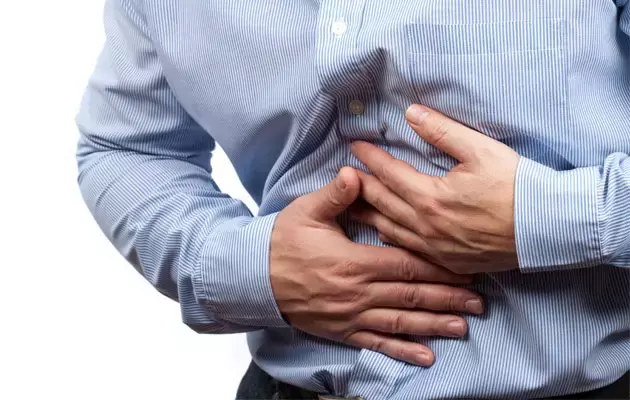- Home
- Medical news & Guidelines
- Anesthesiology
- Cardiology and CTVS
- Critical Care
- Dentistry
- Dermatology
- Diabetes and Endocrinology
- ENT
- Gastroenterology
- Medicine
- Nephrology
- Neurology
- Obstretics-Gynaecology
- Oncology
- Ophthalmology
- Orthopaedics
- Pediatrics-Neonatology
- Psychiatry
- Pulmonology
- Radiology
- Surgery
- Urology
- Laboratory Medicine
- Diet
- Nursing
- Paramedical
- Physiotherapy
- Health news
- Fact Check
- Bone Health Fact Check
- Brain Health Fact Check
- Cancer Related Fact Check
- Child Care Fact Check
- Dental and oral health fact check
- Diabetes and metabolic health fact check
- Diet and Nutrition Fact Check
- Eye and ENT Care Fact Check
- Fitness fact check
- Gut health fact check
- Heart health fact check
- Kidney health fact check
- Medical education fact check
- Men's health fact check
- Respiratory fact check
- Skin and hair care fact check
- Vaccine and Immunization fact check
- Women's health fact check
- AYUSH
- State News
- Andaman and Nicobar Islands
- Andhra Pradesh
- Arunachal Pradesh
- Assam
- Bihar
- Chandigarh
- Chattisgarh
- Dadra and Nagar Haveli
- Daman and Diu
- Delhi
- Goa
- Gujarat
- Haryana
- Himachal Pradesh
- Jammu & Kashmir
- Jharkhand
- Karnataka
- Kerala
- Ladakh
- Lakshadweep
- Madhya Pradesh
- Maharashtra
- Manipur
- Meghalaya
- Mizoram
- Nagaland
- Odisha
- Puducherry
- Punjab
- Rajasthan
- Sikkim
- Tamil Nadu
- Telangana
- Tripura
- Uttar Pradesh
- Uttrakhand
- West Bengal
- Medical Education
- Industry
After hepatectomy white test is potential trigger of acute pancreatitis: Case Study

Three cases of Acute pancreatitis (AP) were studied for the potential effects of white test for intraoperative screening after hepatectomy, their results were published in the BMC Surgery.
Acute pancreatitis (AP) after liver resection is a rare but serious complication, and few cases have been described in the literature. Extended lymphadenectomy and long ischemia due to the Pringle manoeuvre could be responsible of post-liver resection acute pancreatitis, but the exact causes of Acute pancreatitis (AP) after hepatectomy remain unclear.
The researchers reported three cases of Acute pancreatitis (AP) after hepatectomy and we strongly hypothesize that this is due to the bile leakage white test. 502 hepatectomy were performed at our centre and 3 patients (0.6%) experienced acute pancreatitis after LR and all of these three patients underwent the white test at the end of the liver resection. None underwent additionally lymphadenectomy to the liver resection. All patients had a white test during the liver surgery.
Patient A, was a 72-year-old man, underwent a bisegmentectomy V–VI for hepatocellular carcinoma on NASH in November 2020. His comorbidities were high blood pressure, diabetes mellitus, and atrial fibrillation under treatments of anticoagulants.
Patient B, a 66-year-old man, who underwent right hepatectomy in January 2017 for HCC on F2 liver fibrosis post hepatitis C infection experienced post liver resection pancreatitis. A review of this case showed the white test as the trigger factor of pancreatitis.
Patient C, a 65-years-old man, with high blood pressure, hypercholesterolemia, and chronic alcohol consumption comorbidities underwent posterior sectoriectomy for HCC in October 2017. A preoperative blood test showed: platelets: 160 G/L, Prothrombin time: 100%, AFP: 8.1 ng/mL, and normal liver test.
Results of the study:
The researchers identified distal implantation of the cystic duct in these three patients as a potential cause for acute pancreatitis.
Thus, the researchers concluded that the white test is useful for detection of bile leakage after liver resection, but we do not recommend a systematic use after LR, because severe acute pancreatitis can be lethal for the patient, especially in the case of distal cystic implantation which may facilitate reflux in the main pancreatic duct.
Reference:
A study titled, "The white test for intraoperative screening of bile leakage: a potential trigger factor for acute pancreatitis after liver resection—a case series" by Chopinet S et. al published in the BMC Surgery.
Dr. Shravani Dali has completed her BDS from Pravara institute of medical sciences, loni. Following which she extensively worked in the healthcare sector for 2+ years. She has been actively involved in writing blogs in field of health and wellness. Currently she is pursuing her Masters of public health-health administration from Tata institute of social sciences. She can be contacted at editorial@medicaldialogues.in.
Dr Kamal Kant Kohli-MBBS, DTCD- a chest specialist with more than 30 years of practice and a flair for writing clinical articles, Dr Kamal Kant Kohli joined Medical Dialogues as a Chief Editor of Medical News. Besides writing articles, as an editor, he proofreads and verifies all the medical content published on Medical Dialogues including those coming from journals, studies,medical conferences,guidelines etc. Email: drkohli@medicaldialogues.in. Contact no. 011-43720751


